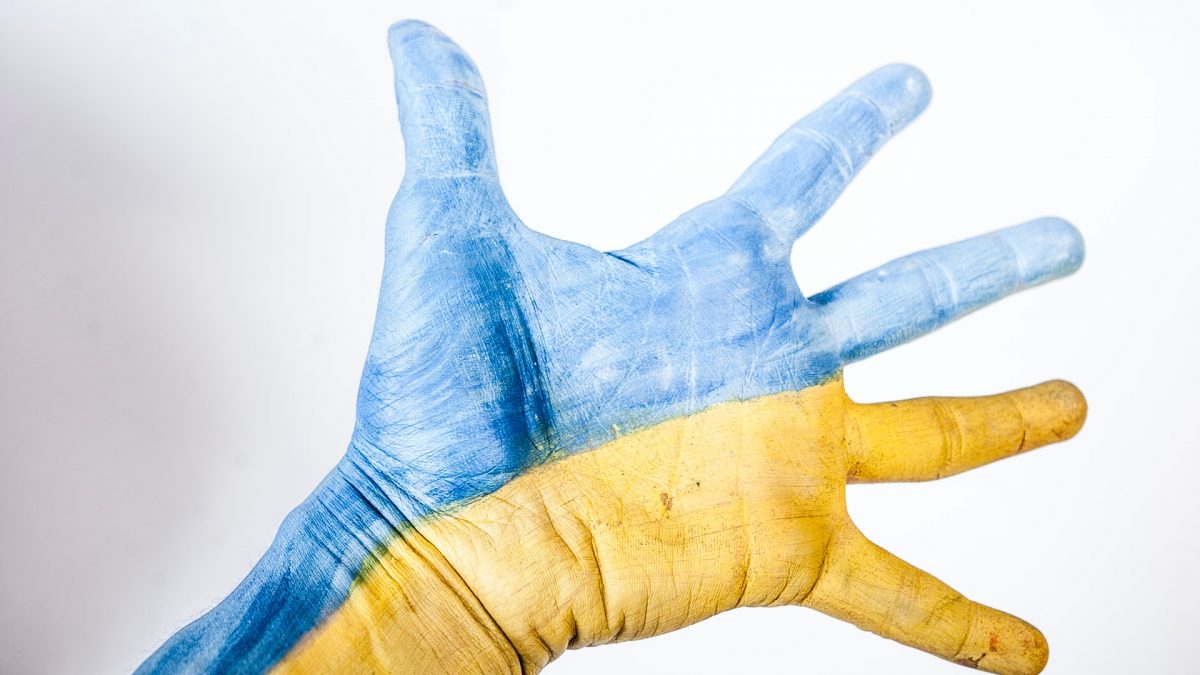Since the beginning of the war in Ukraine, we have been actively promoting and protecting human rights and freedoms of those fleeing the war. This included calling for and expressing solidarity with the people of Ukraine, cooperating with the national authorities and civil society organizations, giving recommendations for ensuring human rights protection and a better implementation of the Directive on temporary protection. These recommendations are based on solidarity, cooperation and the implementation of the experiences gathered in the previous crises, as well as exchanging experiences and best practices with our colleagues from other countries.
At the beginning of the war in Ukraine, the Ombudswoman welcomed the support and great solidarity in Croatia. It was expressed both by the citizens and accompanied with immediate readiness to help those fleeing the war (offering their homes, clothes, food and many other forms of help), as well as by the Government, voicing clear messages of support and emphasizing the importance of providing security to the refugees. A good practice example was the new Interdepartmental Working Group established to implement the activities aimed at providing humanitarian assistance, reception and urgent and appropriate care for the refugees from Ukraine.
Based on our previous experiences and the recommendations we made during in the similar circumstances (the floods in Vukovar-Srijem County in 2014, migrant crisis in 2015 and 2016, earthquakes in Zagreb and the Sisak-Moslavina County in 2020), we prepared recommendations to the Government. They were related to the reception and protection of the human rights of people fleeing Ukraine, organization of the support system, identifying and providing additional support to particularly vulnerable groups, the establishment of a central contact point to which all persons and organizations would be able to provide information on persons arriving to the Republic of Croatia from Ukraine and their humanitarian needs, as well as central coordination points for humanitarian associations, initiatives and citizens’ organizations that provide assistance and support to refugees from Ukraine in the Republic of Croatia. The vast majority of these recommendations have been implemented.
We also pointed out to the need for developing plans for adequate long-term accommodation and housing, sustainable and regular distribution of humanitarian aid, inclusion of children in the education system, ensuring primary health care and effective psychosocial assistance, and inclusion into the labor market.
Since the national legislation was partly inconsistent with the EU Directive on Temporary Protection, and the since the national legislation guaranteed lower level of rights to persons under temporary protection in the field of health care, social welfare and education, than it did for persons under international protection, we proposed that they be harmonized. This was adopted for health and social care by amendments to the Social Welfare Act and the Compulsory Health Insurance and Health Care of Foreigners Act in the Republic of Croatia.
Additionally, in a recent public consultation on amendments to the Act on International and Temporary Protection, we proposed amendments to its provisions regulating temporary protection. This included a harmonization of the level of health care guaranteed to the persons under temporary protection with that provided to Croatian nationals (which has already been introduced by the Law on Compulsory Health Insurance and Health Care of Foreigners), as well as regulating the possibility of higher education for persons under temporary protection and the recognition of foreign educational and professional qualifications
As for the provision of accommodation, we proposed prescribing clearly the amount of funds, as well as the possible amount of permanent monthly income, below which a person is entitled to accommodation.
In addition to participating in legislative procedures, which gives us the opportunity to join Parliamentary Committee sessions, we are in regular contact with the Ministry of the Interior and have, for example, called for intensive work on preventing possible abuses of the extremely vulnerable position of those fleeing the war in Ukraine that potentially can include serious human rights violations, such as human trafficking. This is especially important taking into account the fact that most of the refugees are women and children. We emphasised this issue at the recent thematic session of the Parliamentary Committee for Gender Equality.
We also participate regularly in the meetings of the Operative Group of the Ministry and the Civil Service Directorate, where we can exchange the most current information with the relevant stakeholders and meet with colleagues from around Europe to share information and discuss possible actions.
Finally, on our website we have posted information in Ukrainian, English and Croatian for refugees fleeing to Croatia explaining our mandates and the ways to reach us.


